Key Object-Relational Mapping (ORM) Tools in Java
Nestack utilizes these ORM technologies to develop bespoke software solutions.
Hibernate
Hibernate ORM stands as a cornerstone in the realm of Java programming, providing an effective object-relational mapping framework. It excels in mapping object-oriented domain models to relational databases, streamlining the process by converting Java classes to database tables and Java data types to SQL database types. Beyond its core mapping capabilities, Hibernate adeptly addresses object-relational impedance mismatch issues by replacing direct database access with high-level object handling functions. This framework simplifies data query and retrieval tasks, automatically generating SQL calls and reducing the manual workload on developers. Hibernate's rich feature set makes it a preferred choice for developers seeking to enhance productivity and maintainability in their database interactions.
Java Data Objects (JDO)
Java Data Objects (JDO) offers a specification for Java object persistence, characterized by its transparency in persistence services to the domain model. With JDO, persistent objects are treated as standard Java classes, eliminating the need for implementing specific interfaces or extending particular classes. This simplicity and flexibility make JDO an attractive option for developers looking for a straightforward persistence solution that integrates seamlessly with the Java programming model.
MyBatis
MyBatis distinguishes itself as a more direct and lightweight ORM framework, facilitating the integration of databases with web frameworks and applications. Renowned for its stability and minimalistic approach, MyBatis allows for detailed control over SQL query execution and result mapping, making it ideal for scenarios where custom SQL operations are necessary. Its exceptional compatibility with the Spring framework enhances its appeal, providing developers with a powerful toolset for application development that requires precise database interaction control.
EclipseLink
EclipseLink, another key player in the ORM landscape, serves as the reference implementation of JPA. Offering advanced mapping capabilities, session management, and an extensible framework, EclipseLink is designed to support complex mapping scenarios, including relational, XML, and JSON data structures. Its flexibility and comprehensive feature set cater to developers requiring a high degree of customization and integration with diverse data sources.
Spring Data JPA
An addition worth noting is Spring Data JPA, an extension of the Spring Framework that simplifies data access operations. By leveraging the Java Persistence API (JPA) and Hibernate, Spring Data JPA offers a unified data access layer that automates repository support for entities and reduces boilerplate code. This tool is particularly beneficial for developers working within the Spring ecosystem, seeking to combine the robustness of JPA with the simplicity and convention-over-configuration philosophy of Spring.
Choosing the right Object-Relational Mapping (ORM) tool
Assess these aspects to choose an ORM tool that fits your needs and supports your Java application's growth.
Complexity of Data Model
Consider the complexity of your application's data model. If your application requires complex relationships between entities, opt for an ORM tool that offers advanced mapping capabilities.
Database Support
Ensure the ORM tool supports the database system(s) you plan to use. While most ORM tools support popular databases like MySQL, PostgreSQL, and Oracle, compatibility can vary for less common databases.
Caching Mechanisms
Look for ORM tools that provide efficient caching mechanisms to enhance performance and reduce database load.
Lazy Loading
Evaluate the tool's support for lazy loading, which can improve performance by loading only the necessary data on demand.
Scalability
Choose an ORM tool that can scale with your application. This includes support for distributed systems and the ability to handle increasing amounts of data and transactions efficiently.
Flexibility
The tool should allow for custom SQL queries when the ORM-generated queries are not efficient or feasible for specific use cases.
Maintainability and Support
Opt for an ORM tool that is actively maintained and updated, ensuring it remains compatible with new Java versions and database updates.
Proof of Concept
Before finalizing your decision, implement a small prototype using your shortlisted ORM tools. This approach allows you to evaluate each tool's compatibility with your application's requirements, its ease of use, and the performance implications of its use.
Dive Into Our Services
Explore our diverse range of services designed to cater to your unique needs.
Access Top-Notch IT Professionals
Find highly qualified professionals at Nestack Technologies committed to producing remarkable results and enhancing your business growth.










